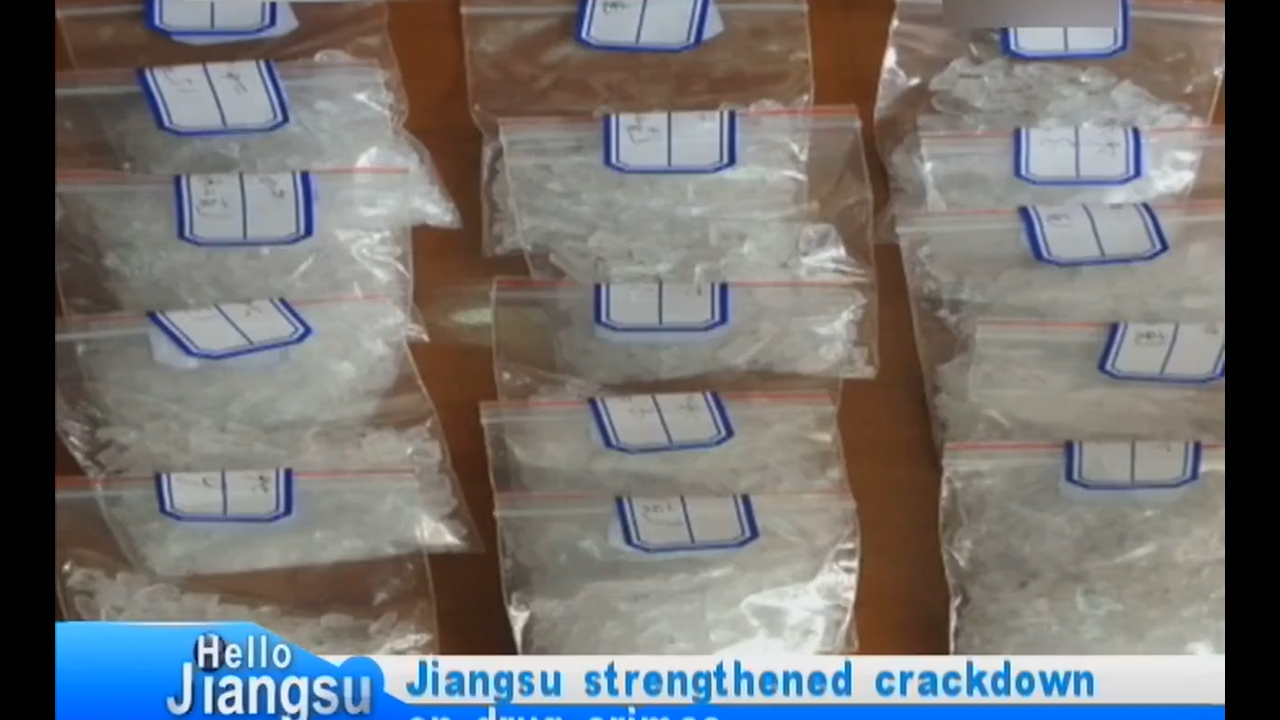The Higher People's Court of Jiangsu Province held a press conference to inform the courts at all levels across the province of the conviction and sentencing of drug crime as the International Day against Drug Abuse and Illicit Trafficking is approaching.
Drug crimes have continued to maintain a high level of occurrences in Jiangsu since the law enforcement campaign against drug abuse and illicit trafficking was launched in 2015, according to the Higher People's Court.
In 2017, all levels of courts across the province accepted 5,557 cases of first-time drug crimes and concluded 5,612 cases, which was an increase of 2.4% and 4.8% year-on-year respectively. From these cases, end-of-pipe drug crimes such as trafficking, transporting drugs, and hosting drug abuse by others are the main drug offenders.
The frequent occurrence of end-of-pipe drug crimes has stimulated the occurrence of large-scale drug crimes. Last year, 16% of the drug crimes reported illicit trafficking of more than 5 kilograms of drugs, according to the Higher People's Court.
The Provincial Higher Court also announced six typical cases of drug trafficking.
China's latest judicial interpretation on rules for drug-related convictions and sentencing took effect in April 2016.
The document, issued by the Supreme People's Court, adopted stricter rules for ketamine by lowering the threshold for criminalization of the drug by half.
Ketamine abuse in China is quite serious, said Fang Wenjun, a senior justice of the SPC. The number of ketamine users continues to grow, and it ranks third among substances, after methamphetamine and heroin, in terms of involvement in drug-related violations.
Production and sale of the drug has also been on the rise in recent years, and harsher rules are needed to deal with it, Fang said.
An increase in users and violations has resulted in a number of cases of self-mutilation, violence and driving under the influence, according to the SPC judge.
[voice over]The new document also added 12 new types of illegal drugs to be subject to criminal penalties and lowered the threshold for conviction of illegal use for 33 precursor chemicals.
[voice over]Drug crime by state officials and illegally providing narcotics to juveniles will be subject to harsher punishments, according to the SPC interpretation.
(Source: ourjiangsu.com)






